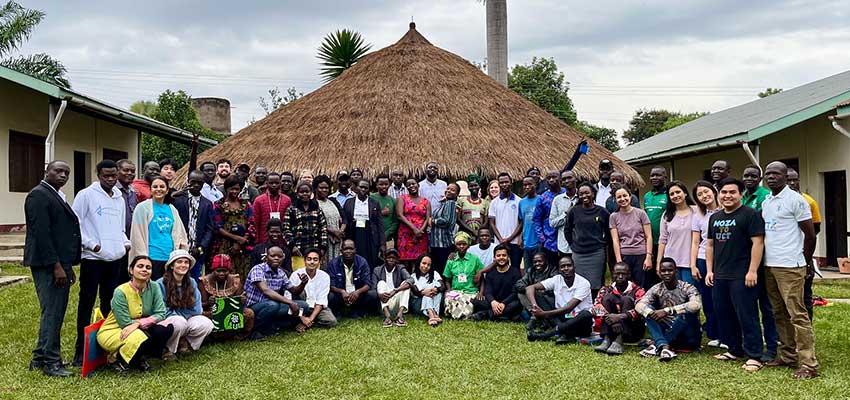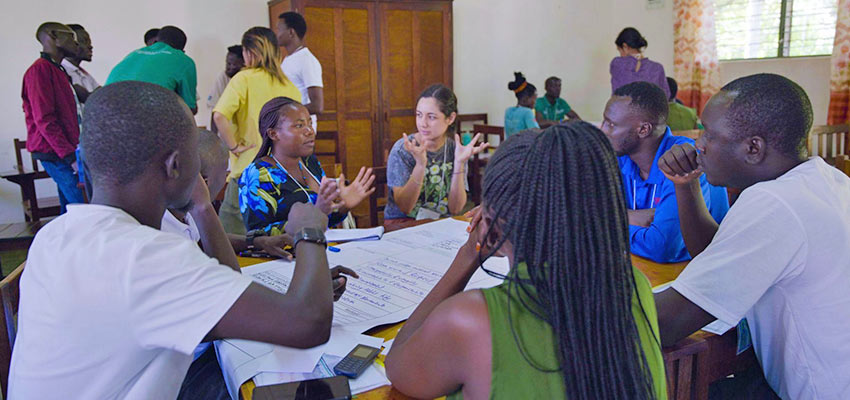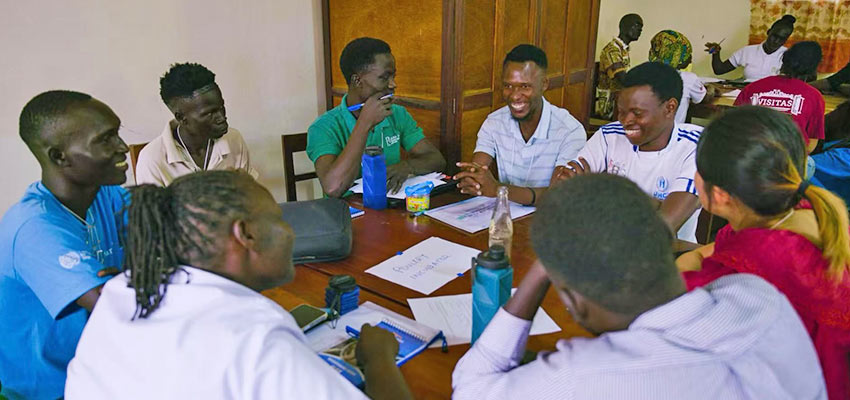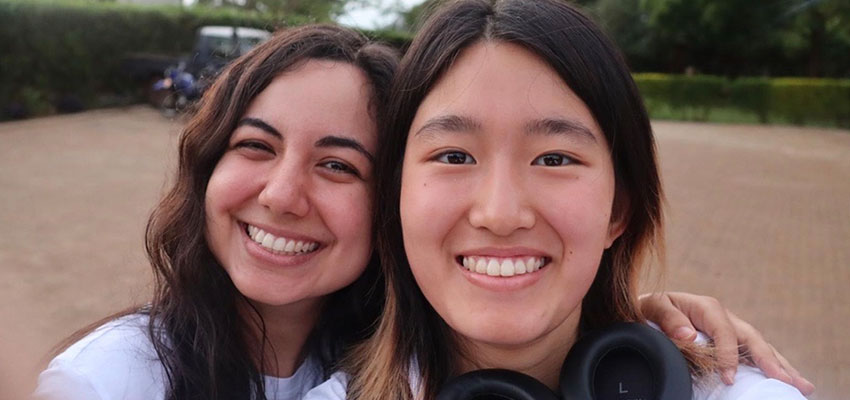
As part of the D-Lab: Humanitarian Innovation course, we traveled to the 2025 Co-Creation Summit in Arua, Uganda, where we were amongst a group of classmates who collaborated with community members from Rhino and Imvepi refugee settlements on co-creation projects that addressed local needs and innovation
Coco, a first-year student at Wellesley College, worked as a member of the Poultry Incubator group, which whimsically named themselves jī, chicken in Mandarin Chinese. With the goal of establishing a poultry incubation service for community members in Rhino and Imvepi settlements, the group worked on improving the existing prototype for mobility, safety, and functionality, and also conducted market research to determine the service size.
Caro, a first-year Sloan MBA candidate, co-developed a smart irrigation system with her team, aiming to ease watering everything from kitchen gardens to larger crop fields. The system her team developed works by sensing the moisture levels in the soil and opening a valve that enables irrigation through a drip system.

Inspiration from community members
The Co-Design Summit brought together a thriving community of innovators. One of our biggest takeaways from the summit was the importance of creating accessible systems for creation in the local context. Throughout the course of the summit, we engaged with representatives from formal institutions such as local community-based organizations and international nonprofit organizations and explored their structures. We also served as informal liaisons to creators and talented individuals. We were surrounded by technicians, entrepreneurs, and filmmakers on our teams, all collaborating to find solutions to problems faced by the refugee communities in the settlements.
We both dove into the summit, guided by what we had learned in the Humanitarian Innovation class. Gradually, what felt like a tentative and cautious atmosphere morphed into a more comfortable environment where we could connect, share thoughts, and challenge one another.
Sometimes, it was the little things like playing volleyball, enjoying the Sudanese snack called Tamiya, or playing animal-guessing games with our teammates. Coco, an avid photographer, connected with Albert, an engineer and community lead of a documentary group based in Rhino Camp’s Community Innovation Center (CIC), through their shared love of photography and professional cameras. They took shots of each other taking photos and Coco took portraits of Albert wearing his Elite Photography T-shirt, standing in front of the payot, a local word for gazebo.
Many meaningful conversations happened over simple interactions. Teammates bonded over meals and tea time. One conversation that left a lasting impression on Coco was with James, the ICT facilitator of the jī group. Having worked in ICT (Information and Communication Technology), creative, and marketing roles for many years, James saw changes in dynamics between international and community organizations. When Coco asked him how he felt about the coming and going of people, he responded that some people are meant to go and some to stay, and that "following the good heart" is what matters the most. James's statement holds so much trust and understanding. While we talked about many beautiful visions and futures during the summit, we were all collectively grounded and driven in this moment.

Another experience that is close to Caro’s heart was a conversation she had with Richard, a social innovator on her team who has started numerous community impact projects. Richard shared the incredible initiatives he worked on in his settlement, helping community members repair their electronics and teaching them how to do it themselves. Over time, interest in his work grew, and he expanded his team to extend his support to many other communities within the camp. He even began helping with other activities that people requested of him, like clothing repairs!
When sharing his dreams and the challenges that Richard faced in achieving success, it struck Caro that the lack of opportunities in some of these areas inhibited these incredible dreamers and doers from having an even greater positive impact in their communities. What was most inspiring about Richard was that, even with these limitations, he hasn’t stopped working for others. He has been invited to exclusive international events for social innovators, and every day he continues his work for his community.
These are the people we need more of: unapologetic dreamers who fight by walking the talk, by working hard for their communities, and by inspiring those around them. Because this is how he is changing his world, and soon, the world.
Conclusion
During their time at the summit, we engaged not only in technical collaboration but also in the forging of meaningful relationships with community members, peers, and local innovators. We were struck by the persistence and generosity of the people they worked alongside—individuals driven by a clear sense of purpose and an unwavering commitment to community-led innovation. These connections extended beyond the project work itself. Advisors, creators, and participants offered guidance, shared their passions, and opened the door to lasting co-creation relationships.
We quickly grew fond of the warm forms of address in meetings—the use of “my dear,” the thoughtful greetings, and the mutual respect that characterized each interaction. Even after returning to the U.S., we continued working with our project teams remotely, staying in touch through messages that often arrive unexpectedly and joyfully, reminding us that the work and its impact continue beyond the summit.

For both of us, these relationships have shaped a deeper realization: we care not just about the outcomes of our projects, but also about the people behind them. We care about the lives, aspirations, and stories shared with us. And this care moves us to act. It’s not just about solidarity in the moment; it’s about carrying these connections forward, holding space for them in their minds, in their work, and in their hearts.
About the authors
Carolina Orozco is an MBA student at MIT Sloan with a bachelor’s degree in Biotech Engineering, experience in management consulting, and a strong passion for driving social impact
Coco Zhang, Wellesley Class of 2028, is pursuing a bachelor’s degree in Computer Science and Linguistics.
Related
Building community in Uganda: a Co-Creation Summit experience
Co-Creation is a circle, not a line: lessons in listening, building, and belonging in Uganda
More information
MIT D-Lab Humanitarian Innovation class
Contact
MIT D-Lab Humanitarian Innovation Team

